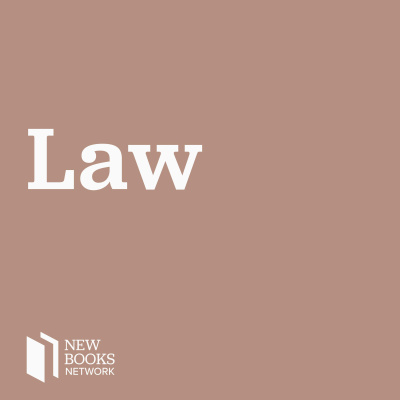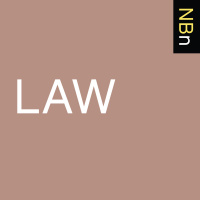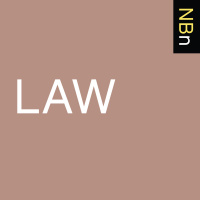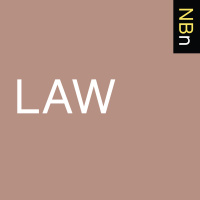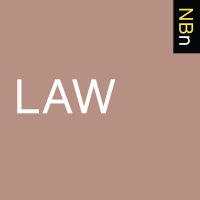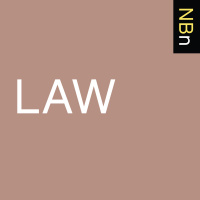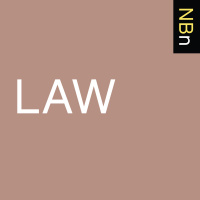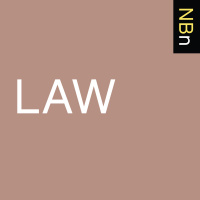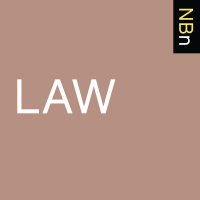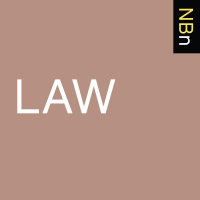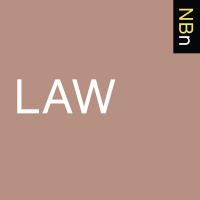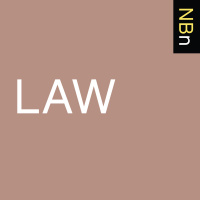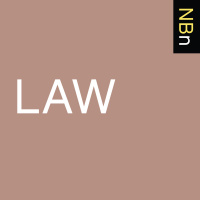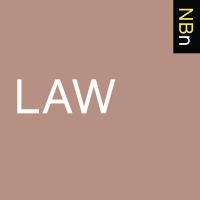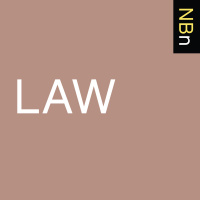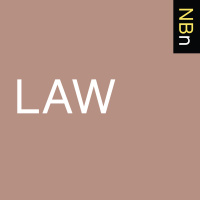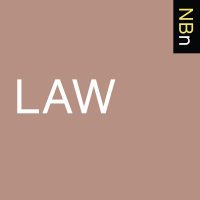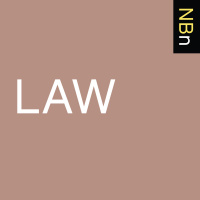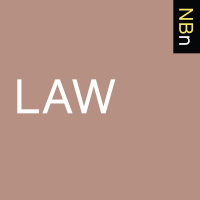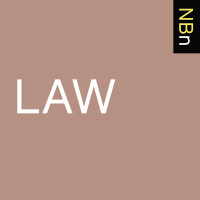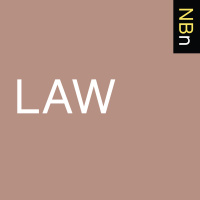Sinopsis
Interviews with Scholars of the Law about their New Books
Episodios
-
Sarah E. Igo, “The Known Citizen: A History of Privacy in Modern America” (Harvard UP, 2018)
28/08/2018 Duración: 55minSarah E. Igo is an associate professor of history at Vanderbilt University and the author of The Known Citizen: A History of Privacy in Modern America (Harvard University Press, 2018). Igo provides a legal and social history of the idea of privacy and how it was first evoked, challenged, written into law and reinterpreted by ordinary citizens in the age of mass marketing and social media. Once the right of elite citizens to protect their reputations, the growth of the bureaucratic state, communications technologies, and the inquiries of experts brought the issue of privacy into view for many more Americans. First defined by legal experts as the “right to be left alone” in bodily, mental and emotional aspects, by the end of the twentieth century privacy came to mean the right to control one’s public narrative. Americans have swung from seeking seclusion in increasingly secure homes to tell-all public confessions, reflecting a dilemma between the desire to left alone and the need to be known. Igo has shed light
-
Philip Thai, “China’s War on Smuggling: Law, Economic Life, and the Making of the Modern State, 1842-1965” (Columbia UP, 2018)
21/08/2018 Duración: 01h06minFrom petty runs to organized trafficking, the illicit activity of smuggling on the China coast was inherently dramatic, but now historian Philip Thai has also identified China’s history of smuggling as a significant narrative about the expansion of state power. China’s War on Smuggling: Law, Economic Life, and the Making of the Modern State, 1842-1965 (Columbia University Press, 2018) spans multiple regimes from the late Qing dynasty to the early years of the People’s Republic of China. Thai notes that regimes tightened regulations, increased tariffs, and enforced laws more harshly as part of the project to consolidate authority and meet challenges posed by foreign powers. The smuggling epidemic put constraints on consumption that remade daily life for individuals, merchants, and communities. Their resistance threatened the state’s power while at the same time encouraging state intervention that increased the reach of the state and its authority. Drawing from a rich array of sources including customs records,
-
Gary Fields, “Enclosure: Palestinian Landscapes in a Historical Mirror” (U California Press, 2017)
16/08/2018 Duración: 53minInspired by the usage of the term ‘enclosure’ to describe the Separation Wall in Israel-Palestine on a visit he made to the West Bank, Gary Fields in Enclosure: Palestinian Landscapes in a Historical Mirror (University of California Press, 2017) draws upon the past to speak to the Palestinian present and explain Palestinian dispossession. We talk through why Fields thinks it is necessary to use a long lens to think about the discourses framing the conflict in Israel/Palestine, specifically the English enclosures, which changed the nature of access to common land across the English countryside and Amerindian dispossession in colonial America. As land, discourse, and people themselves shape the practice of enclosure, we hone in on the politics of writing about Palestine and Palestinians, as well as how Fields’ other work fits into his academic work. Enclosure is on the short-list for the Palestine Book Award for the 2018 year. Gary Fields is professor of communication at UC San Diego. He received his Ph.D
-
Ron Fein, “The Constitution Demands It: The Case for the Impeachment of Donald Trump” (Melville House, 2018)
15/08/2018 Duración: 41minIs there a case for the impeachment of Donald Trump? Constitutional attorney Ron Fein says not only is there a case, but also that the case exists regardless of what happens with the special counsel investigation. The Constitution Demands It: The Case for the Impeachment of Donald Trump (Melville House, 2018), co-authored by Fein and two of his legal colleagues at Free Speech for People, articulates the grounds for at least eight articles of impeachment, most of which are unrelated to the allegations of a election conspiracy with Russian officials. They argue Trump has violated the Constitution by accepting payments from foreign governments through his Washington, DC hotel, using government agencies to pushing political enemies, undermining a free press and abusing the power to pardon. The book argues that political considerations for 2018 and 2020 should be set aside, and that the impeachment process should begin immediately strictly on constitutional grounds. Bill Scher is a Contributing Editor for POLITIC
-
Thomas Mulligan, “Justice and the Meritocratic State” (Routledge Press, 2018)
13/08/2018 Duración: 52minThomas Mulligan’s new book, Justice and the Meritocratic State (Routledge Press, 2018), posits a theory of justice that is based on the allocation of valuable goods (jobs and appropriate income) according to merit. This is an abstract concept that Mulligan details according to economic, philosophical, and political understandings. He weaves together the political and economic dimensions of meritocratic allocations and spends the latter part of the book noting policy ideas that can bring this abstract concept into being. In the process, Mulligan critiques contemporary concepts of justice, especially commenting on the 20th-century work by Robert Nozick, John Rawls, Leo Strauss, and post-modern philosophers. The argument made for meritocratic allocation of valuable goods is seen as a kind of third way between the limited nature of egalitarian theory on one side and libertarian theory on the other. The argument for “desert”-based justice also brings the ideal of the American dream into clearer focus in Mulligan’s
-
Heather Schoenfeld, “Building the Prison State: Race and the Politics of Mass Incarceration” (U Chicago Press, 2018)
08/08/2018 Duración: 01h02sHow did prisons become a tool of racial inequality? Using historical data, Heather Schoenfeld’s new book Building the Prison State: Race and the Politics of Mass Incarceration (University of Chicago Press, 2018) “answers how the United States became a nation of prisons and prisoners” (p. 5). Schoenfeld exposes the reader to the historical development of prisons and policy development. She focuses specifically on Florida as a case study to show how prisons become racialized social systems. Interestingly, much of the crime control we have today grew out of racialized punishments and unrest shaped during the civil rights era. Bringing us all the way up to 2016, Schoenfeld sheds light on how prisons developed over time, even as crime rates have fallen. Often incentivized as a source of economic potential in rural areas, prisons have a unique history in the U.S. and this book uncovers that fascinating history. This book will be of interest to Sociologists and Criminologists, but also Political Scientists and soci
-
Robert N. Gross, “Public vs. Private: The Early History of School Choice in America” (Oxford UP, 2018)
06/08/2018 Duración: 01h03minThere are numerous political debates about education policy today, but some of the most heated surround vouchers, charter schools, and other questions about public funding and oversight of private schools. Though many of these questions feel new, they, in fact, have a long history. Public vs. Private: The Early History of School Choice in America (Oxford University Press, 2018) examines that history, tracing early debates about school choice. Robert N. Gross, a history teacher and assistant academic dean at Sidwell Friends School in Washington, DC, explains how public schools developed with their promoters intending them to be a new monopoly in education. Then, in the late 19th century, Catholic immigrants sought to set up private schools, leading to an era of conflict and compromise between public and private school policy. Gross shows how and why regulation become an important tool for both sides in those conflicts. Further, the book shows how schools were thought of as a public utility and become a key pa
-
Allan Greer, “Property and Dispossession: Natives, Empires and Land in Early Modern North America” (Cambridge UP, 2018)
06/08/2018 Duración: 45minIn his Property and Dispossession: Natives, Empires and Land in Early Modern North America (Cambridge University Press, 2018), Allan Greer, Canada Research Chair in Colonial North America at McGill University in Montréal, examines the processes by which forms of land tenure emerged and natives were dispossessed from the sixteenth to the eighteenth centuries in New France (Canada), New Spain (Mexico), and New England. By focusing on land, territory, and property, he deploys the concept of ‘property formation’ to consider the ways in which Europeans and their Euro-American descendants remade New World space as they laid claim to the continent’s resources, extended the reach of empire, and established states and jurisdictions for themselves. Challenging long-held, binary assumptions of property as a single entity, which various groups did or did not possess, Greer highlights the diversity of indigenous and Euro-American property systems in the early modern period. The book’s geographic sc
-
Katherine Benton-Cohen, “Inventing the Immigration Problem: The Dillingham Commission and Its Legacy” (Harvard UP, 2018)
30/07/2018 Duración: 01h07minIn 1907 the U.S. Congress created a joint commission to investigate what many Americans saw as a national crisis: an unprecedented number of immigrants flowing into the United States. Experts—women and men trained in the new field of social science—fanned out across the country to collect data on these fresh arrivals. The trove of information they amassed shaped how Americans thought about immigrants, themselves, and the nation’s place in the world. Katherine Benton-Cohen argues that the Dillingham Commission’s legacy continues to inform the ways that U.S. policy addresses questions raised by immigration, over a century later. Within a decade of its launch, almost all of the commission’s recommendations—including a literacy test, a quota system based on national origin, the continuation of Asian exclusion, and greater federal oversight of immigration policy—were implemented into law. Inventing the Immigration Problem: The Dillingham Commission and Its Legacy (Harvard University Press, 2018) describes the laby
-
Sarah Igo, “The Known Citizen: A History of Privacy in Modern America” (Harvard UP, 2018)
25/07/2018 Duración: 41minTo write a book on such a multifarious and vast, if not ubiquitous, concept as privacy is a tall task for the historian. Sarah Igo, associate professor of history at Vanderbilt University, took this on and succeeded masterfully. Her book, The Known Citizen: A History of Privacy in Modern America (Harvard University Press, 2018), is filled with sophisticated arguments and compelling stories. It explores how privacy first burst into political debate and cultural anxieties in the late nineteenth-century and how Americans ever since have navigated the moving line between the private and the public. She traces how new technologies (e.g. instant cameras), new practices (e.g. journalistic focus on the personal), new forms of knowledge (e.g. psychology), and new book genres (e.g. the tell-all memoir) spurred debates about privacy in the United States. Most critically, she shows how claims to privacy—made by gay Americans, the poor, and other marginalized groups—were also assertions of citizenship. Who gets privacy, a
-
William Kuby, “Conjugal Misconduct: Defying Marriage Law in the Twentieth-Century United States” (Cambridge UP, 2018)
16/07/2018 Duración: 54minWilliam Kuby is an Assistant Professor of History at the University of Tennessee-Chattanooga. His book, Conjugal Misconduct: Defying Marriage Law in the Twentieth-Century United States (Cambridge University Press, 2018), examines the complicated legal and cultural history of heterosexual marriage. Long before the controversy over same-sex marriage, Americans found multiple ways to object to certain heterosexual marriages and divorce. The commercialization of courtship through advertisements and marriage bureaus, trial and common law marriages, rising divorce and remarriage rates, interracial coupling, and onerous waiting periods and requirements created a marriage crisis in law. It also created a crisis in social policy and norms as people experimented with unconventional unions and attempted to redefine gender roles and expectations. The marriage market was rife with unrealized expectations. Often the attention from conservative critics and journalists was greater than any real threat to marriage and the fam
-
Stephen C. Yeazell, “Lawsuits in a Market Economy: The Evolution of Civil Litigation” (U Chicago Press, 2018)
10/07/2018 Duración: 55minStephen C. Yeazell‘s Lawsuits in a Market Economy: The Evolution of Civil Litigation (University of Chicago Press, 2018) is an in-depth look at the development and current situation of civil litigation. It beings with the question of why civil lawsuits have become such a political question and uses that to explore our world of settlements, arbitration, trials and insurance adjusting. It gives an expert, informed and even-handed look at what can be a contentious topic and is accessible to the layperson and edifying even to the professional. It portrays our environment of civil litigation as an evolving one where real people solve real problems, often for society’s benefit.Learn more about your ad choices. Visit megaphone.fm/adchoices
-
Frank R. Baumgartner, “Suspect Citizens: What 20 Million Traffic Stops Tell Us about Policing and Race” (Cambridge UP, 2018)
04/07/2018 Duración: 31minWe recently marked the 50th Anniversary of Terry vs. Ohio, the US Supreme Court case that dramatically expanded the scope under which agents of the state could stop people and search them. Taking advantage of a North Carolina law that required the collection of demographic data on those detained by the police during routine traffic stops, Frank Baumgartner and his colleagues analyzed twenty million such stops from 2002-2016. They present the results of this research in Suspect Citizens: What 20 Million Traffic Stops Tell Us about Policing and Race (Cambridge University Press, 2018). Join us as we speak with Baumgartner about what they found—and what we can do to reduce the most discriminatory features of the practice. Stephen Pimpare is Senior Lecturer in the Politics and Society Program and Faculty Fellow at the Carsey School of Public Policy at the University of New Hampshire. He is the author of The New Victorians (New Press, 2004), A People’s History of Poverty in America (New Press, 2008), winner
-
Linda Ross Meyer, “Sentencing in Time” (Amherst College Press, 2017)
03/07/2018 Duración: 56minIf you look at the history of punishment (at least in the West), what you’ll see is that we’ve gone from a penal regime that used (inter alia) physical violence—whipping, beating, branding, amputation, and killing—to one that uses confinement. It is a mark of our “civility” that we no longer “hurt” people to get them to do what we want; instead, we put them in jails and prisons. We sentence them to “do time,” that time being a period of confinement away from, well, pretty much everybody. In her thought-provoking book Sentencing in Time (Amherst College Press, 2017), Linda Ross Meyer examines “doing time.” What, she asks, does it really mean to “do time” and does “doing time” really do what we say it does? Her answers are, to say the least, disturbing. “Doing time” means being sentenced to meaninglessness (something humans don’t like at all) and, no, it really doesn’t do much good at all beyo
-
Martha S. Jones, “Birthright Citizens: A History of Race and Rights in Antebellum America” (Cambridge UP, 2018)
02/07/2018 Duración: 01h28sThe contemporary moment has brought to the forefront the question of what constitutes an American citizen. The legal question in popular understanding stems from the Fourteenth Amendment and its use of birthright citizenship as a central identifier of what makes a citizen. In Dr. Martha S. Jones’ newest book, Birthright Citizens: A History of Race and Rights in Antebellum America (Cambridge University Press, 2018) skillfully demonstrates that by the time the amendment was passed, Black Baltimoreans had already personally conceived of themselves as birthright citizens because of their lived experiences in the antebellum era. By using the country’s largest free Black population as a proxy to discuss the performance of citizenship by Black Baltimoreans, Dr. Jones re-conceptualizes our understanding of what the politics of belonging meant for this very important antebellum Black community. Adam McNeil is a PhD student in History, African American Public Humanities Initiative and Colored Conventions Project Fello
-
Adam Tanner, “Our Bodies, Our Data: How Companies Make Billions Selling Our Medical Records” (Beacon Press, 2017)
28/06/2018 Duración: 55minPersonal health information often seems locked-down: protected by patient privacy laws, encased in electronic record systems (EHRs) and difficult to share or transport by and between physicians and hospitals. But as Adam Tanner argues in his latest book, Our Bodies, Our Data: How Companies Make Billions Selling Our Medical Records (Beacon Press, 2017), our medical information is anything but static. He describes a vast and growing industry of trade in patient data, emanating from EHRs to pharmacy and drug company sales records. These data – ostensibly stripped of identifying information – are sold and bought largely to help medical and pharmaceutical companies better market their products (as well as for some research). Tanner asks, are these data completely safe? Could they be re-identified and threaten patient privacy? How might this trade in data impact patient care and physician practice? While consumer data breaches plague other industries, Tanner urges us as consumers, medical practitioners and society
-
Rick Hasen, “The Justice of Contradictions: Antonin Scalia and the Politics of Disruption” (Yale UP, 2018)
25/06/2018 Duración: 25minSeveral years on from the death of Antonin Scalia, what is his legacy? What did he leave the Supreme Court and jurisprudence? In The Justice of Contradictions: Antonin Scalia and the Politics of Disruption (Yale University Press, 2018), Rick Hasen takes up the large task of answering parts of this question. Hasen is Chancellor’s Professor of Law and Political Science at the University of California, Irvine. Scalia was funny and rude and innovative. Scalia was disrupter on the court, as the book’s subtitle suggestions. Much of Hasen’s book wrestles with Scalia’s favored ways of interpreting the law, textualism and originalism. Hasen shows the impact of the turn to these approaches, both in specific court rulings, but also in the wider impact on other jurists. Hasen argues that Scalia’s legacy will be protected by the large numbers of lawyers and newly appointed judges who adopted his approaches, including the newest justice, Neil Gorsuch.Learn more about your ad choices. Visit megaphone.fm/adchoices
-
Lauren-Brooke Eisen, “Inside Private Prisons: An American Dilemma in the Age of Mass Incarceration” (Columbia UP, 2017)
25/06/2018 Duración: 29minWho benefits from mass incarceration in the U.S.? In her new book Inside Private Prisons: An American Dilemma in the Age of Mass Incarceration (Columbia University Press, 2017), Lauren-Brooke Eisen explain how, when and why the for-profit prison system emerged, the ways in which it functions throughout the criminal justice system today, and what we might do to improve it. Stephen Pimpare is Senior Lecturer in the Politics and Society Program and Faculty Fellow at the Carsey School of Public Policy at the University of New Hampshire. He is the author of The New Victorians (New Press, 2004), A People’s History of Poverty in America (New Press, 2008), winner of the Michael Harrington Award, and Ghettos, Tramps and Welfare Queens: Down and Out on the Silver Screen (Oxford University Press, 2017).Learn more about your ad choices. Visit megaphone.fm/adchoices
-
Ramon Harvey, “The Qur’an and the Just Society” (Edinburgh UP, 2017)
25/06/2018 Duración: 01h03minRamon Harvey‘s new book The Qur’an and the Just Society (Edinburgh University Press, 2017) tackles a topic as big and meaningful as the title of the book suggests. What is justice? What words does the Qur’an use to explore the meaning of justice? How did the social context of the Qur’an exist in its time as compared with later time periods? To what extent does the Qur’an give specific guidance for realizing justice, and to what extent does it give more general principles? Dr. Harvey treats these questions and others as he guides the reader through his erudite yet accessible and clearly organized monograph. He draws smoothly from numerous modern and premodern thinkers and engages closely with the Qur’anic text throughout the book; the extensive glossary also aids in the reader in making sense of the material. Given the broad relevance of justice in the Qur’an to any number of fields, the book should interest not only Islamicists and Qur’anic studies scholars, but also political scientists, scholars of ex
-
Christopher W. Schmidt, “The Sit-Ins: Protest and Legal Change in the Civil Rights Era” (U Chicago Press, 2018)
22/06/2018 Duración: 51minThe sit-in movement that swept the Southern states in 1960 was one of the iconic moments of the post-World War II civil rights movement. Yet the images of students patiently sitting at “whites-only” lunch counters conveys only one facet of a complex series of events. In The Sit-Ins: Protest and Legal Change in the Civil Rights Era (University of Chicago Press, 2018), Christopher W. Schmidt chronicles the movement and its impact on the political and legal struggle for civil rights for African Americans. As Schmidt explains, prior to the sit-ins the main civil rights organizations were fighting segregation primarily through the courts. The incremental pace of change frustrated younger activists, with four students at North Carolina A&T ultimately deciding to fight segregation through direct protest. Yet the lunch counter protests they inspired were viewed with considerable ambivalence by the civil rights leadership, who were doubtful that the counters could be compelled to accept black patrons under existin
